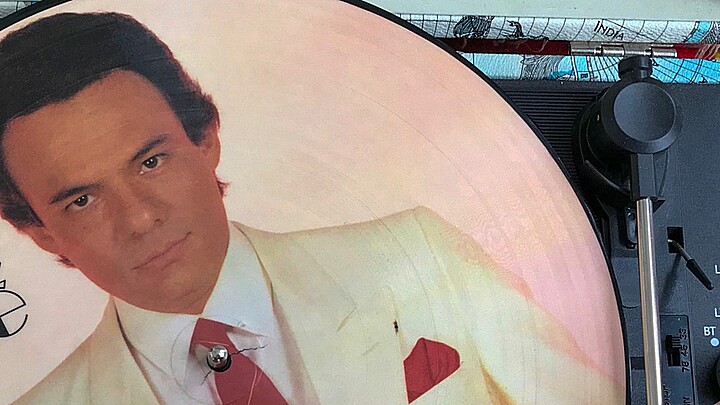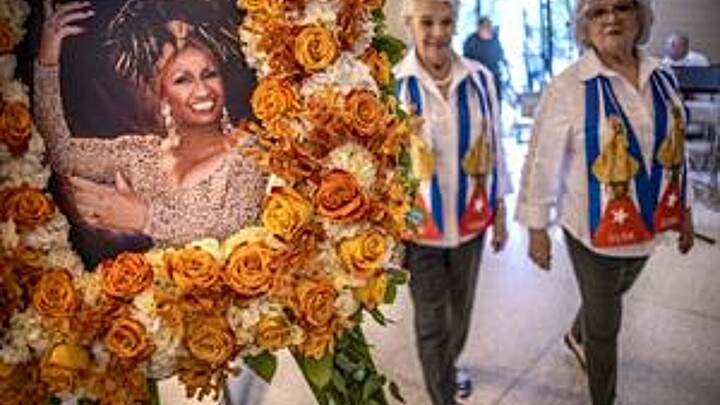Entertainment
Two Latin Grammys for "Patria y Vida" dedicated to the Virgin of Charity and to the Cuban people
Yotuel Romero and his wife Beatriz Luengo offered the two Latin Grammys won for the song "Patria y Vida" to the Virgin of Charity in Miami.
November 22, 2021 3:35pm
Updated: November 22, 2021 3:39pm
Yotuel Romero and his wife Beatriz Luengo left the two Latin Grammy awards that they won for the song “Patria y Vida” at the feet of the Virgin of Charity at The Miami hermitage to Our Lady of Charity – a national shrine to Cuba’s spiritual patron.
After mass, Romero performed the award-winning song in front of the congregation. He invited his social media followers to attend the event, writing:
“I’ll see you today at 3:00 pm at the Hermitage to our Lady of Charity in Miami. Blessing the Grammys for the Cuban people. All are welcome.”
View this post on Instagram
Father Fernando Hería, the Hermitage’s rector, noted that many Cubans leave awards at the feet of the Virgin, “as a sign of gratitude to God through His Mother” as they associate her with the Cuban people.
Father Hería called for a moment of silent prayer for the imprisoned Cuban artists Maykel Osorbo and Luis Manuel Otero Alcántara.
“Patria y Vida,” a song that attacks the Castros’ regime, won “Song of the Year” and “Best Urban Song” at last Thursday’s Latin Grammy awards.
The song was recorded by Yotuel Romero, Descemer Bueno, Gente de Zona, Maykel Osorbo and El Funky, and serves as a criticism of Cuba’s communist regime. It was banned on the island and Cubans can be arrested for listening to it. The title of the song is a play on words, countering Fidel Castro’s infamous “Patria o Muerte” (Homeland or Death) motto.
“Patria y Vida,” translated as “Homeland and Life,” became the anthem of the opposition during the anti-government protests in Cuba this past July. One of the song’s authors, Maykel Osorbo, is currently being held for political charges at a Cuban state prison. He is reportedly sick.
Before the Grammys, Osorbo reached out to the other artists, and according to a post by El Funky on Facebook, “he made it clear that the Grammy belongs to the people of Cuba.”
Beatriz Luengo, one of the song’s authors and Yotuel's wife, received the award for "Best Urban Song." She thanked the audience for helping the song become “a hymn of freedom for Cuba.”
“I cry because you have no idea how much I’ve suffered – as a woman and as a songwriter. There have been all kinds of threats against me, and they even took down my social media pages. They took down the video from YouTube. The song rocked the boat, but it only speaks about human rights,” she added.
Luengo also remembers being threatened -- “with my newborn son” – for his part in the song’s release. The lyrics ask for “freedom for those who have no voice.”
He remembered Cubans "who have put art at the service of freedom of expression," such as the poet Dulce María Loynaz and the singers Gloria Estefan and Celia Cruz.
“Patria y Vida” was also nominated for Song of the Year.
During his remarks after receving the awards, Yotuel Romero dedicated his success to his “free Cuba,” to Maykel Osorbo and Descemer Bueno. He asked for “freedom for all of Cuba’s political prisoners.”









